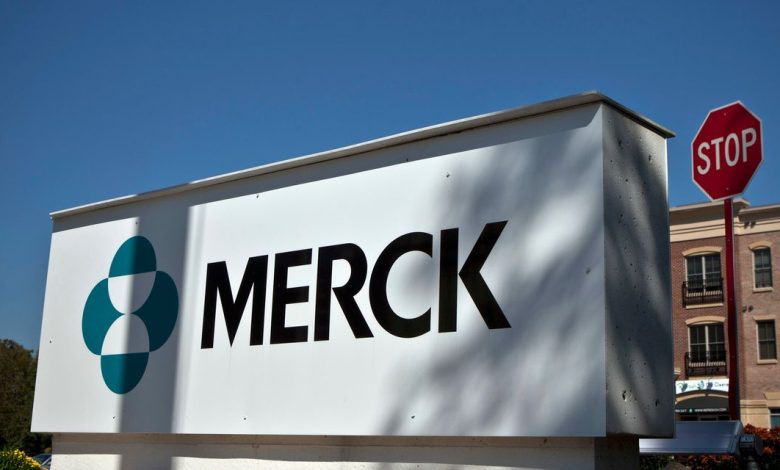Merck’s $10.8 billion takeover of Prometheus gives it a foothold in immunology

[ad_1]
Merck & Co.’s $10.8 billion acquisition of Prometheus Biosciences Inc., which it announced Sunday, is a strategic positive that will help the drug company diversify its portfolio and reduce the risk of an overreliance on its cancer drug Keytruda, analysts said Monday.
San Diego, Calif.-based Prometheus
RXDX,
is a clinical-stage biotechnology company focusing on autoimmune treatments, such as PRA023, a treatment under development for illnesses such as ulcerative colitis and Crohn’s disease.
“This transaction adds further diversity to our overall portfolio and is an important building block in strengthening the sustainable innovation engine that will drive our long-term success,” Merck Chief Executive Rob Davis told analysts on a call to discuss the deal, according to a FactSet transcript.
BofA analysts said diversity is a key goal for Merck, given that Keytruda is expected to account for more than 45% of total revenue by 2025.
“While we wouldn’t expect today’s proposed transaction to meaningfully move Merck’s shares on Monday given its relative size, we see the deal as a strategic positive and another step in the right direction to diversify Keytruda concentration risk,” analysts led by Geoff Meacham wrote in a note to clients.
Also see: Moderna, Merck combo cancer-vaccine treatment shows ‘significant’ promise
BofA has a buy rating on Merck
MRK,
with a $130 price target that’s about 13% above its current price.
Prometheus had a market cap of about $5.42 billion as of Friday’s close. Its stock is up 3.7% year to date but has skyrocketed 225% over the past 12 months, with much of the gains coming after PRA023 advanced to Phase 3 clinical trials in December. The news of the Merck deal — with its 70% premium — sent the stock up 69% on Monday.
PRA023 is an antibody that binds TL1A, a target associated with both intestinal inflammation and fibrosis, said the BofA analysts. Phase 2 studies have demonstrated the best-in-class potential for the drug, which is a potential disrupter in the inflammatory and immunology space and has a pipeline that stretches beyond inflammatory bowel disease, or IBD, they wrote.
IBD is the umbrella term used to describe diseases including Crohn’s and ulcerative colitis, both of which cause chronic inflammation of the gastrointestinal tract, leading to diarrhea, rectal bleeding, abdominal pain, fatigue and weight loss.
Prometheus has a roughly $5 billion potential by 2030, the analysts said, although they noted that with Phase 3 studies to be launched this year, “there is still a lot of wood to chop before commercialization,” which is expected by 2026.
Stifel analysts led by Annabel Samimy said: “We see Merck as having captured a plum asset with potentially little competition (due to exposure overlap amongst most other large pharma) — adding a strong franchise in immune-mediated/fibrotic conditions to its current focus areas in oncology, infectious disease, and cardio-metabolic disorders.”
Stifel is not anticipating any major antitrust issues to arise, given that the deal is Merck’s first foray into the immune-mediated space, while other big drug companies, including Bristol Myers Squibb Co.
BMY,
AbbVie Inc.
ABBV,
Pfizer Inc.
PFE,
and Johnson & Johnson
JNJ,
all have meaningful exposure to IBD.
See now: Moderna is developing a vaccine against the tick-borne Lyme disease, in a first for the company
Guggenheim analysts led by Yatin Suneja said the deal is the cherry on top of its Best Idea for 2023, which was to buy Prometheus stock.
PRA023 is a potential game changer “that could break through the efficacy ceiling that has plagued the [IBD] space for years,” they wrote. The deal is not just good for Merck, either — Prometheus gets the global infrastructure and resources of a big pharma company to help push through Phase 3 trials.
“Given the big opportunity for 2023 in IBD, we see this valuation as reasonable and don’t expect any competing offers,” they wrote.
Guggenheim has a buy rating on Merck.
Merck’s stock was down 0.5% Monday but has gained 3.4% in the year to date, while the S&P 500
SPX,
has gained 7.8%.
[ad_2]
Source link



